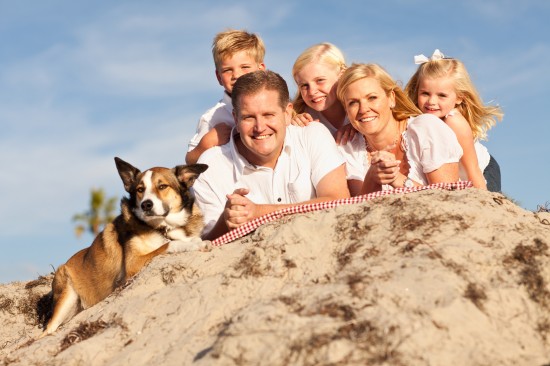
Everyone loves their dogs, but dog ownership brings with it many responsibilities. Foremost among these responsibilities is ensuring that your pet is not a danger to people or other pets and animals. Other responsibilities include proper care and obedience training.
Over millions of years dogs have developed the instinct for a hierarchical social order in which each member has a certain rank. A dog will challenge those dogs higher in the social order to secure his position. While such a social order is fine for dogs and wolves in the wild, such behavior is not acceptable in the human social order. Training your dog is the key to having a happy, pleasant, and obedient canine companion.
However, finding a trainer that can teach obedience properly can be a challenge. Here are some tips to help you find the best trainer for your dog and you!
1. Just as you wouldn't put your child in a school you knew nothing about, you shouldn't simply hand your dog over to someone who claims to be a dog trainer. There's no licensing required for dog trainers, so anyone can claim to be one. Get references. Talk to friends who have used the trainer. Observe dogs that have been trained by this trainer.
2. Ask to attend a training session (without your dog) to observe how the trainer works with a dog. Class size should be small for individual attention. Are dogs separated by age? Puppies have different training needs from adult dogs. Does the trainer require proof of up-to-date vaccinations? Are the animals and their owners having a good time?
3. Is the trainer certified through the Certification Council for Pet Dog Trainers (CCPDT) or some other recognized certifying authority?
4. The trainer should use positive reinforcement to encourage correct behavior, not punishment for bad behavior.
5. Avoid trainers who insist that you use a choke chain during training.
6. There is some debate about whether or not food should be used as positive reinforcement during training. While many dogs have been successfully trained using food as reinforcement, the detractors claim that once food is withheld, the dog may not obey or may become aggressive. In your dog trainer research, you will need to examine both approaches, and determine which is best for you and your dog.
7. Make sure you know exactly what the trainer is going to do with your dog before the class. Don't be afraid to question - or even stop - the training if you are not comfortable about what the trainer is doing.
8. Avoid a trainer who advertises a guarantee.
9. Your training class should allow all members of your family to participate in the training. Keep in mind that you are being trained to communicate with the dog, so the dog needs to learn to respond to and socialize with each member of the family.
10. Finally, if you believe your dog - or any dog - has been mistreated, document the situation and get names of witnesses. Report the incident to your Animal Control office or the Humane Society.
While a good dog trainer may be expensive, getting a good one the first time around is much less expensive than paying to correct the damage done by an incompetent trainer, not to mention the additional stress on your pet.
 Signs Youre Family Might Be Ready To Adopt Or Buy A Dog
Signs Youre Famil
Signs Youre Family Might Be Ready To Adopt Or Buy A Dog
Signs Youre Famil
 Kitty Attitude Or Love?
Cats have a reputation for their snooty attitudes. They
Kitty Attitude Or Love?
Cats have a reputation for their snooty attitudes. They
 Few Interesting Facts About Dog Food Ingredients
Few Interesting Facts About Dog Food Ingredients
Few Interesting Facts About Dog Food Ingredients
Few Interesting Facts About Dog Food Ingredients
 Feeding A Fussy Feline: Owner’s Manual
Feeding A Fussy F
Feeding A Fussy Feline: Owner’s Manual
Feeding A Fussy F
 Breeding From Your Dog - Development Up To Twelve Weeks Old
Breeding From You
Breeding From Your Dog - Development Up To Twelve Weeks Old
Breeding From You
Copyright © 2005-2016 Pet Information All Rights Reserved
Contact us: www162date@outlook.com